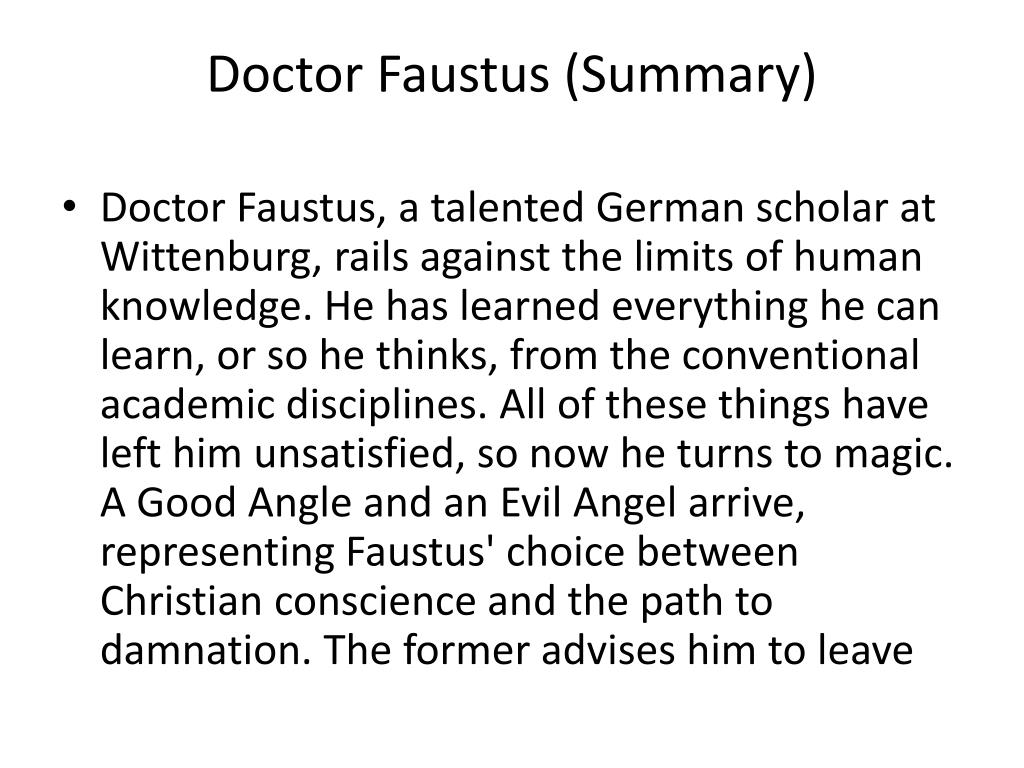
A Good Angle and an Evil Angel arrive, representing Faustus' choice between Christian conscience and the path to damnation. All of these things have left him unsatisfied, so now he turns to magic. He has learned everything he can learn, or so he thinks, from the conventional academic disciplines. (cited in Kindlers Literatur Lexikon Online: ).Doctor Faustus, a talented German scholar at Wittenburg, rails against the limits of human knowledge. Stuttgart/Weimar: Verlag J.B. Metzler, 2009. Das Leben des deutschen Tonsetzers Adrian Leverkühn erzählt von einem Freunde.“ Ludwig, Heinz (ed.). Works consulted: Ridley, Hugh / Vogt, Jochen. The novel quotes, for the most part, not from Goethe’s Faust, but from the Historia, the late sixteenth-century German source of the Faust theme. This technique allows Thomas Mann to associate Leverkühn’s Faustian fate as an artist with Germany’s disastrous historical path, and the national ‘pact’ with the devil that Zeitblom witnesses. Zeitblom paints a vivid picture of post-1900 German intellectual culture, but also makes reference to the (fascist) Germany of his own day. The narrator, Serenus Zeitblom, Ph.D., a stuffy scholar who teaches high school during the Hitler years, looks back with much admiration at the life of his childhood friend Leverkühn.

The novel tells the story of the syphilitic composer Adrian Leverkühn, born in 1885, who participates in the European avant-garde until succumbing to dementia in 1930 at the height of his musical genius (having just finished an oratorio based on Faust). Not since Goethe has this medieval German theme been made so strikingly and ingeniously relevant for the modern age. Here, Mann uses the Faustian pact with the devil to allegorize the rise of fascism in German culture. “The novel of my era, as the story of a highly-precarious and sinful artist’s life.”-This is how Thomas Mann, Nobel laureate in literature and master of the modern German realist novel, described his Doctor Faustus.


 0 kommentar(er)
0 kommentar(er)
